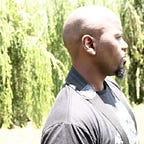The Power of Self-Learning
Autodidacticism, or self-education, is the discipline of self-learning usually without the guidance of masters or educational institutions. It generally refers to individuals who are self taught learners, who choose the subject they will study, their material, and the rhythm and time. Autodidacts have made some of the most remarkable contributions to science, “Many who are self-taught far excel the doctors, masters, and bachelors of the most renowned universities,” writes Ludwig von Mises, an autodidact himself in the line of Economics, History and Sociology.
It is the habit of the idler to attribute great accomplishments to genius, the idler does not appreciate the hours dedicated to the perfection of a craft but only sees the result. Bill Gates, who many consider a genius of modern times, holding the title of the World’s Richest Man for years, attributes his own success to his love of learning. He reads one to two books per week, as a rule he completes every book he begins, even if it does not agree with his philosophy. His motto is that if you don’t complete a book, you run the risk of missing key points or leaving gaps in your understanding on the subject.
Right from fifth grade he was a keen learner and would always be found deep in some novel or encyclopedia. His reading became such a habit that his parents decided to enforce a no reading policy during supper.
“Reading is still the main way that I both learn new things and test my understanding,” he says. “Whether I’m at the office, at home, or on the road, I always have a stack of books I’m looking forward to reading”.
His personal library is a huge 2,100 square ft dome with a double deck of bookshelves. Is it any wonder that his work has changed the world? The majority of personal computers in the world are running Microsoft, and his philanthropy has impacted billions of people throughout the third world.
Napoléon Bonaparte, French General and statesman during the French Revolution used to say;
“Show me a family of readers, and I will show you the people who move the world.”
Napoléon had a personal librarian and always traveled with books, he took a great interest in constructing the ultimate portable library to accompany him on his military campaigns.
Thomas Edison was also a voracious reader, receiving only two months of public education but going on to own a private collection of well over 30 thousand books. As a youth he was a rather poor student and easily distracted, his schoolmaster, after having expelled him, sent him home with a letter to his mother that read;
“Your son is mentally deficient. We cannot let him attend our school anymore. He is expelled.”
She thereafter taught him from home, he would apply himself diligently to learning and his mother encouraged him to read across the panorama of literature and not only what he enjoyed. He once committed to reading all the books in the local library.
“I read everything!” he says, “Not merely scientific works, but anything that helps the imagination.”
His career displayed the result of it, an exhibition of well over a thousand patents and numerous works that changed society for the better, including the light bulb, microphone, and the phonograph which was a precursor to the compact disk and would revolutionize home entertainment for a generation. Although his methods in business were aggressive, his ceaseless work ethic nevertheless contributed a great deal to humanity.
History is littered with great leaders and thinkers who were lifelong learners, the career of Elon musk is quite remarkable. A lifelong learner and voracious reader, the companies he has founded are set to change the modern world as we know it, insofar as the industries, no challenge seems too great for him.
On Rocket science, he was once asked how he had learned it; “I read books,” was his reply. He borrowed textbooks on the subject and threw himself wholly to it. Founder of the Mars Society Robert Zubrin once mentioned that he did not know anything about rockets when he met him. “Nothing,” he says;
“That was in 2001. By 2007 he knew everything about rockets — he really knew everything, in detail. You have to put some serious study in to know as much about rockets as he knows now.”
He also taught himself computer science through books. His uncle, Scott Haldeman, once remarked;
“He never went anywhere without a book in his hand. He was always reading… often advanced books… books about the future and about success.”
“Even at an early age he would always migrate to the most successful person in the room, and he would just stand there and listen and then ask very pointed questions. They were always highly intelligent and highly directed. He’d leave his cousins and his brother and sister in order to come and spend time with somebody he perceived as being a success in whatever field they happened to be in.”
His career is perhaps one of the more remarkable examples of self help, from an early age we see him looking to find his place in the world to the degree that when he was twelve he sold his first computer software, a game he created called Blastar. During the start of ZIP2, he would work 80, 90 hours a week;
“The first time I really noticed,” continues his uncle, “was when he and his brother visited us for Christmas while they were forming Zip2, everybody was opening presents, and Elon worked from the minute he got up to the minute he went to sleep on Christmas Day, and every day he was there.”
His major achievements in the last few decades have spanned multiple industries and companies, namely Tesla, SpaceX, Starlink, NeuralLink and the Boring company which are set to change the world as we know it today.
Read more in my new book! The Trials And Triumphs of Hyperachievers
